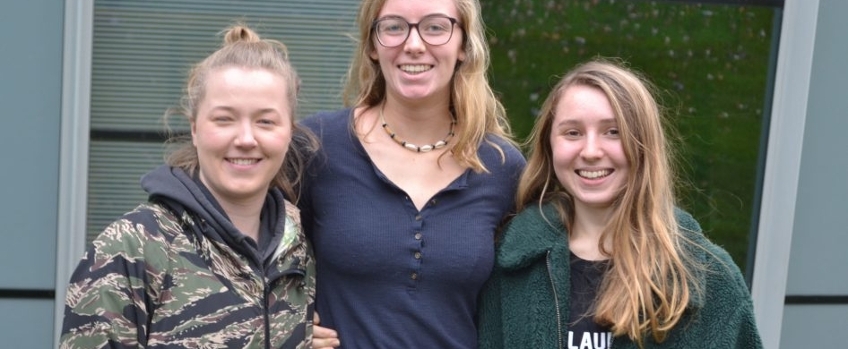No matter where you are outside, litter is virtually everywhere. Cans, plastic bottles, crisp packets, sigarettes… everything lands on the ground. Niamh Carey, Emily van den Burg and Eve Moore are 3 foreign students on the ESSET programme. As part of their minor they have started a project to map litter. They want to intentify which Breda areas have a serious rubbish problem, and also find out what causes littering.
“Encountering litter everywhere seems to have become the new normal. We need to get rid of that mindset. That’s why we feel this is such an interesting topic: we need to find a simple solution to this problem, which everyone can adopt. Creating awareness is important, giving people insight into how they can contribute”, Emily says. “Today litter is simply cleaned up. As a result, people have stopped considering it a problem. Preventing litter from ending up in our environment in the first place is an important part of our project”, Niamh adds.
Source of litter
The students will partner up with their client Markkant and the Breda council to study data related to litter in Breda. Eve: “Coordinated by Markkant Breda, De Stadsjutters [‘The City Combers’], have been collecting litter for some time now. Although they clean up a lot, new litter just keeps appearing.”
“Our aim is to prevent littering”, Emily continues. “We want to identify the sources of litter, i.e. what, when and why. Once we’ve done that, we can come up with a good solution and take effective action.”
“We also primarily target manufacturers and their responsibility”, Eve says. “For example, we might let the council know that we’ve found a large amount of Coca-Cola cans. This allows the council to talk to Coca-Cola about the fact that their packaging constitutes a major part of the litter in Breda.”
Although anyone is welcome to download the Literatti app to register litter, Niamh, Emily and Eve see Avans students as the main target audience of their project. Niamh: “Students can register litter in plenty of situations, such as during their walk to school or during their lunch break.”
For other cities too
Niamh, Emily and Eve will conclude the project by writing a recommendation report. “This will set out what actions we’ve taken but mainly what steps we recommend the council to take. It will include concrete solutions, such as installing more bins and putting more effort into waste separation. This also includes a protocol that allows other cities to execute this project too”, Niamh explains. “Although we will quit after the January report, the project will continue.” The study will run from September 2019 to August 2020. Emily: “Starting today, people can register litter using the app. The earlier they start, the more they will help us with our project. This way, our results will be even more accurate.”
The group already has some results. You can see here what the three students found so far.
Source: Punt
